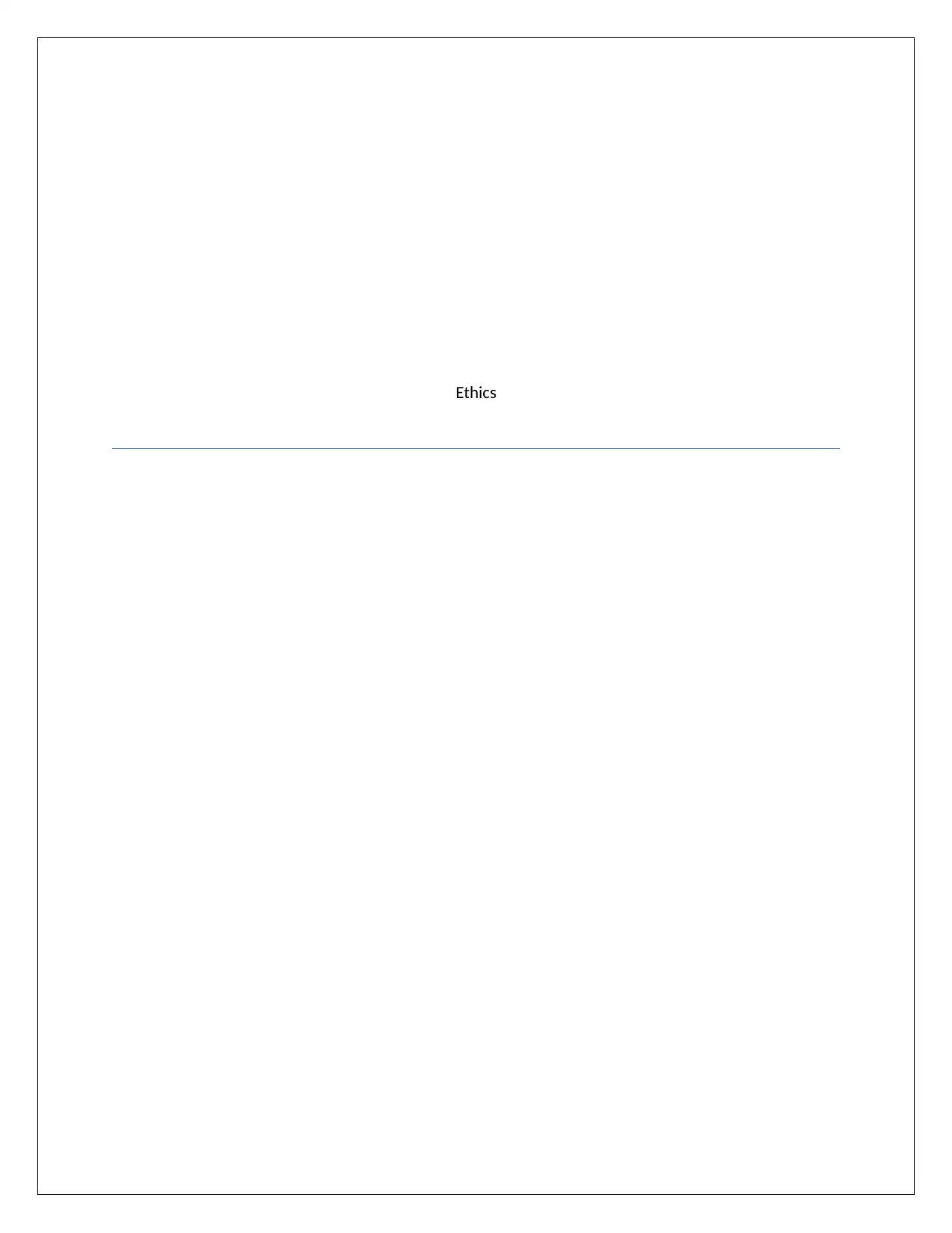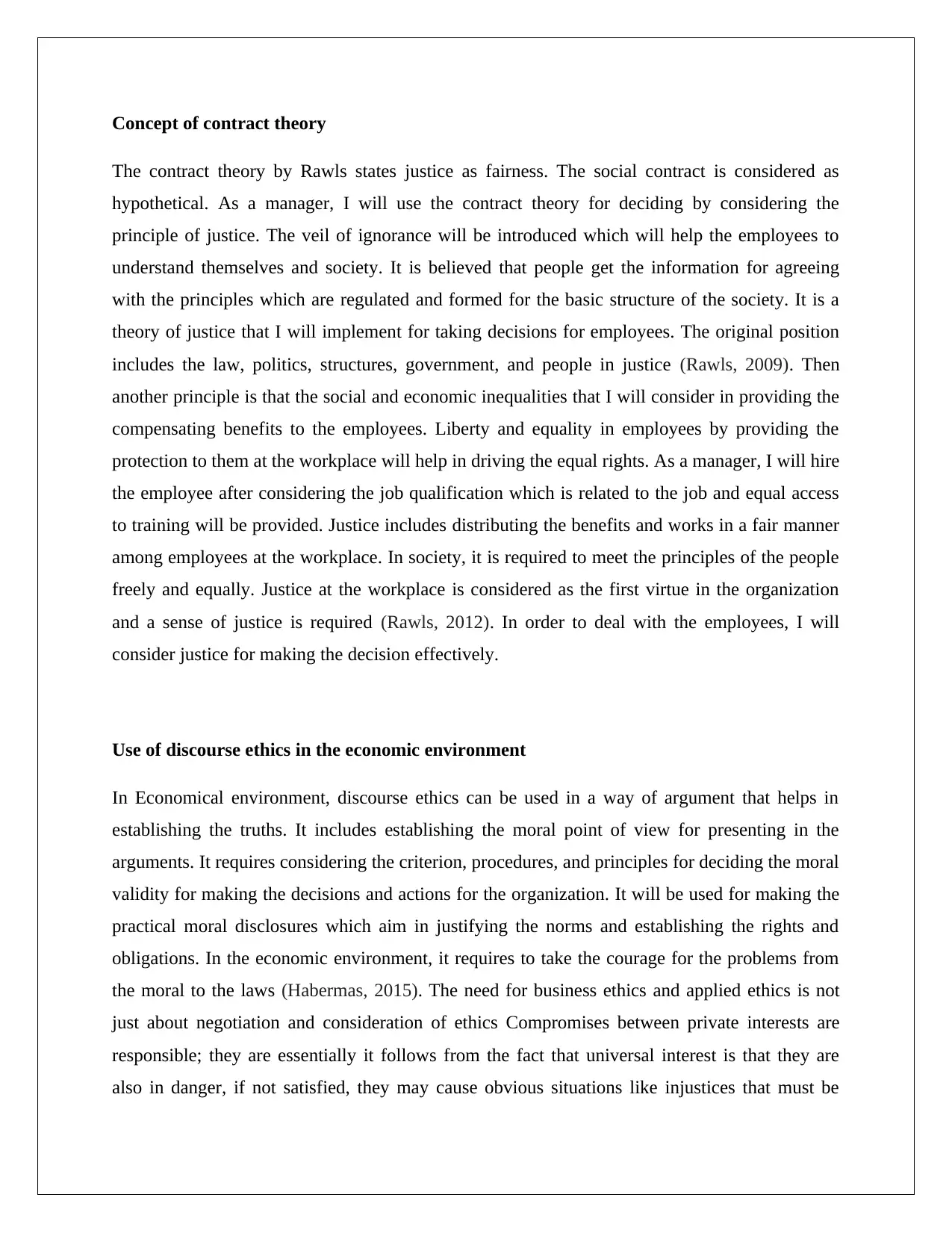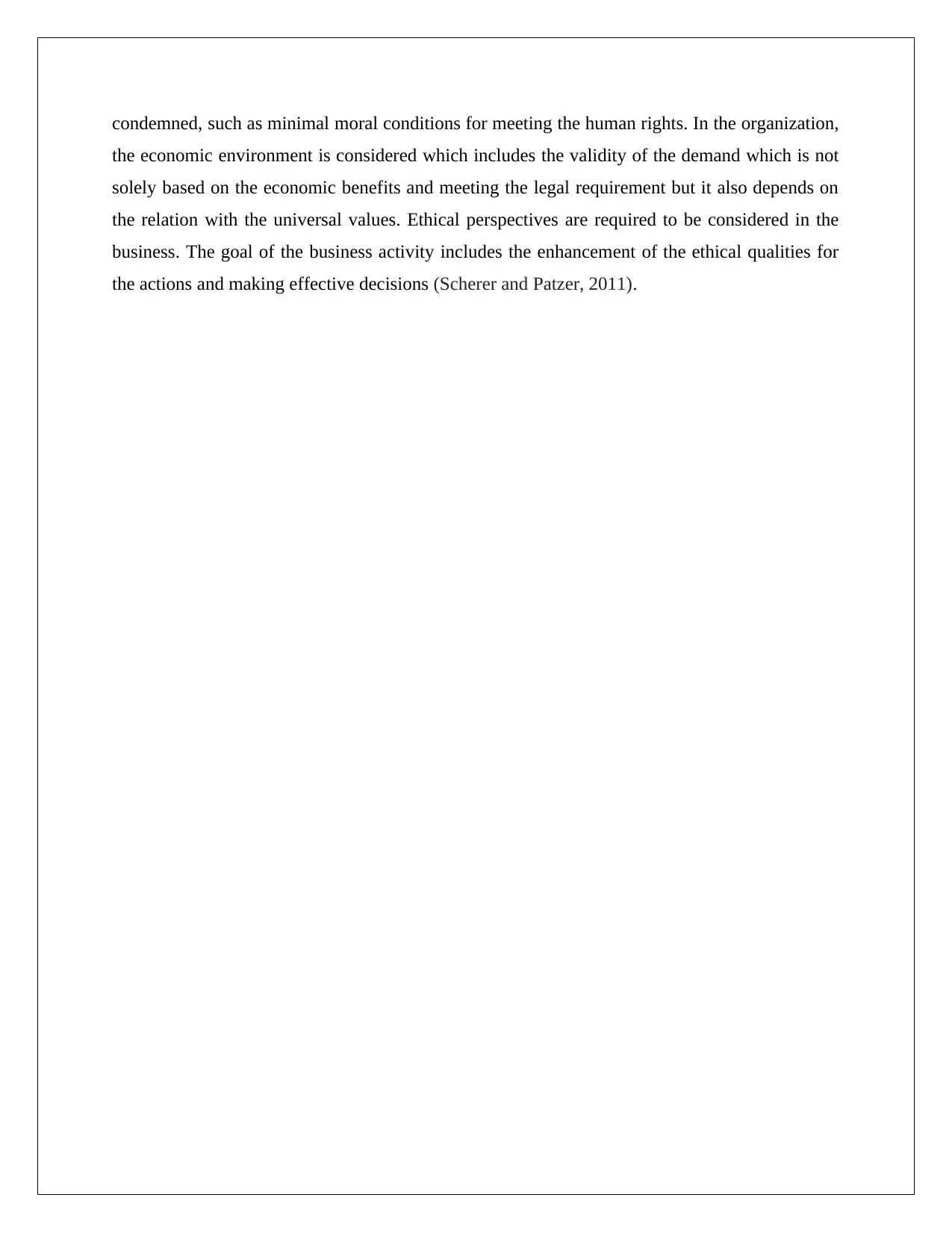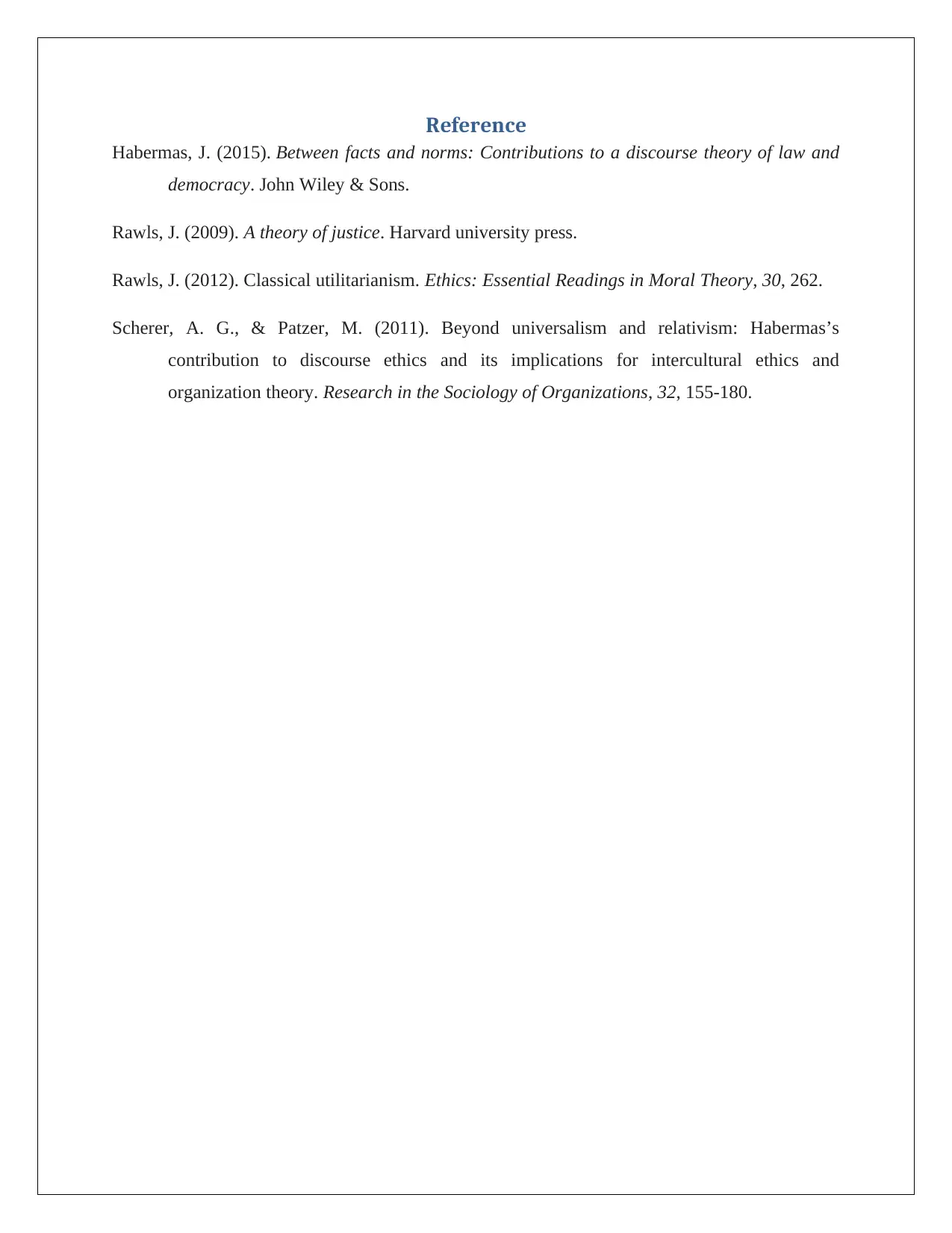Analysis of Ethical Principles: Contract Theory, Discourse Ethics
VerifiedAdded on 2022/09/06
|4
|660
|16
Report
AI Summary
This report delves into ethical considerations within a management context, primarily focusing on contract theory and discourse ethics. The analysis begins with an exploration of Rawls' contract theory, emphasizing justice as fairness and the role of the 'veil of ignorance' in decision-making processes. It highlights the significance of social and economic inequalities, and the importance of providing equal rights and opportunities to employees. Furthermore, the report explores discourse ethics within the economic environment, examining its use in establishing moral viewpoints and justifying norms. It emphasizes the need for ethical perspectives in business to enhance the quality of actions and decision-making. The report concludes by highlighting the importance of ethical considerations, including universal values and the need for business ethics, in addressing various challenges within an organization. The ethical principles are also presented in a way of the references used to support the arguments.
1 out of 4










![[object Object]](/_next/static/media/star-bottom.7253800d.svg)